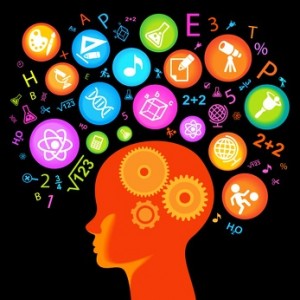 Recently, my daughter went with her two older children to attend a conference in Dallas, called “Rethinking Education.” This annual event is for homeschooling families, particularly families who identify themselves as “unschoolers.”
Recently, my daughter went with her two older children to attend a conference in Dallas, called “Rethinking Education.” This annual event is for homeschooling families, particularly families who identify themselves as “unschoolers.”
In recent years, homeschooling has become somewhat mainstream, and I think most people have at least some familiarity with the concept. “Unschooling” is an approach that forgoes regular lessons, and encourages children to seek out their own educational opportunities, based on their interests.
We homeschooled our younger children. Our son is a now a senior at The University of Texas, majoring in film, and our niece is going to University of Houston to major in broadcast journalism. I’m a bit more conservative than my daughter – perhaps not quite as brave, or just need a little more control – so we used an approach that combined standard education along with many unschooling ideas. Now our children are in college, we often receive feedback from advisors and professors about what creative and self-motivated learners they are. In fact, that’s pretty standard. Most of the top American universities now actively recruit homeschoolers.
People are often horrified when they first hear the idea of “unschooling.” Turning kids loose to essentially manage their own learning seems scary and irresponsible. Personally, I had a great education in Catholic schools and boarding schools, and it was definitely traditional. The nuns who taught me followed a formula, and based on my grades, they were able to evaluate my progress as I learned the essential cultural, mathematical and scientific lessons that prepared me for college, and for life as an upper middle-class person. Good public schools accomplish the same thing, of course.
What a huge leap is required to get from our ideas about what school should be, to unschooling!
The essential difference is a belief in the idea of inherent genius. Inside each human being, no matter how he or she might score on an IQ test, are levels of genius waiting to be discovered, if only we can trust enough. Recognizing this inherent genius also requires that we suspend our preconceived notions about what constitutes educational success. Yes, I certainly agree it’s important that children learn to read well, and be exposed to great literature and history. It’s important they can function well in math, and have a basic understanding of science.
But what I have learned, observing my own children and grandchildren, as well as hundreds of other homeschoolers, is that, if we give them a fertile environment and time to explore on their own, kids figure out what excites them intellectually. That might be computers, or it might be mechanics or music or space travel or sewing. But if we fill every hour of our children’s lives with regimented activity, with school and sports and extracurricular lessons, they are much less likely to discover their passions and their own personal genius.
For most of us, now that we’re adults, it’s too late to go back and redesign our educations. And I’m not on a soapbox advocating homeschooling. It was great for our family, but it isn’t for everyone. Their are many paths parents can take to foster their children’s intellectual and emotional development.
What we can do for ourselves (as well as for our children) is to see ourselves as we really are. Each of us is brilliant in some way. Each of us has within us the answers to all our questions. To live happy, creative lives, we must take ourselves out of the box society builds for most of us, and trust above all our own inner guidance and inherent genius.
